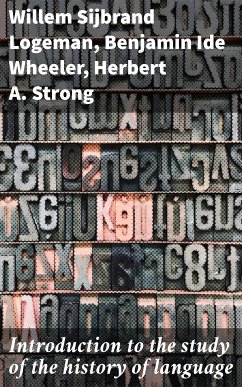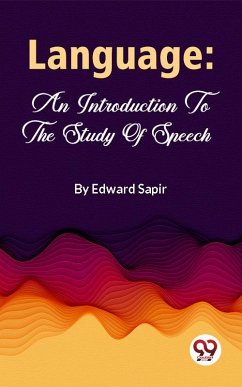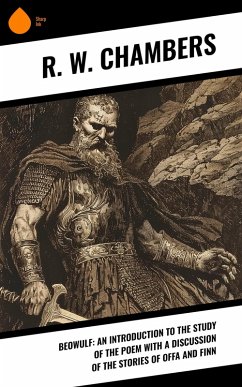
Introduction to the study of the history of language (eBook, ePUB)

PAYBACK Punkte
0 °P sammeln!
Anchored in the rich tapestry of linguistic evolution, 'Introduction to the Study of the History of Language' is a captivating anthology that unravels the complexity of language development across cultures and epochs. This esteemed collection delves into the multifaceted nature of language, presenting a range of styles from analytical essays to comparative studies, each work contributing to a broader understanding of linguistic transformation. Highlighting key themes such as phonetic shifts, semantic evolution, and syntactic structures without attributing them to a singular author, this anthol...
Anchored in the rich tapestry of linguistic evolution, 'Introduction to the Study of the History of Language' is a captivating anthology that unravels the complexity of language development across cultures and epochs. This esteemed collection delves into the multifaceted nature of language, presenting a range of styles from analytical essays to comparative studies, each work contributing to a broader understanding of linguistic transformation. Highlighting key themes such as phonetic shifts, semantic evolution, and syntactic structures without attributing them to a singular author, this anthology stands as a testament to the dynamic role language has played in shaping human interaction and societal progression. The contributions of scholars Willem Sijbrand Logeman, Benjamin Ide Wheeler, and Herbert A. Strong augment this volume's exploration of linguistic history. Collectively, these authors provide invaluable insights, drawing upon their extensive research and expertise in philology and linguistics. Their works align with broader historical, cultural, and literary movements, showcasing how language serves as both a mirror and a vehicle for cultural identity and change. By weaving together diverse academic voices, the anthology enriches the reader's comprehension of language's impact across different periods and contexts. This collection offers an indispensable journey for anyone seeking to understand the myriad forces shaping language over time. 'Introduction to the Study of the History of Language' provides readers with a unique opportunity to grasp the expansive dialogue about linguistic transformation through various lenses. Its educational significance is profound, inviting both novice and seasoned linguists to delve into a compendium that promises not only to inform but also to provoke thoughtful consideration of the complex interplay between language and cultural evolution. This anthology is a gateway to appreciating the intricate and often subtle influences that have sculpted the languages we speak today.
Dieser Download kann aus rechtlichen Gründen nur mit Rechnungsadresse in A, B, BG, CY, CZ, D, DK, EW, E, FIN, F, GR, H, IRL, I, LT, L, LR, M, NL, PL, P, R, S, SLO, SK ausgeliefert werden.













